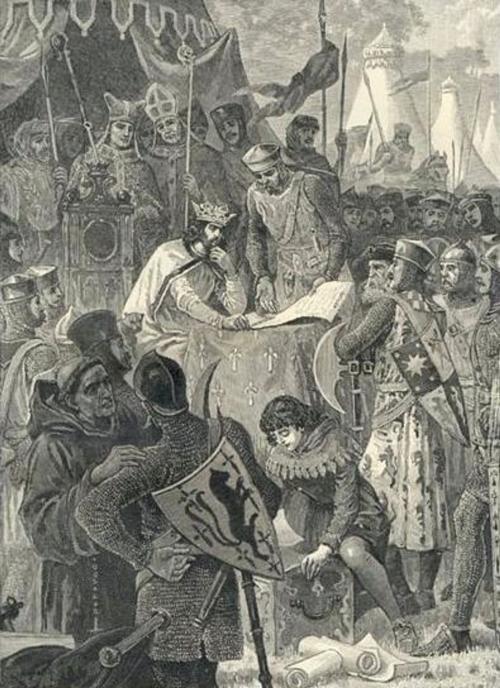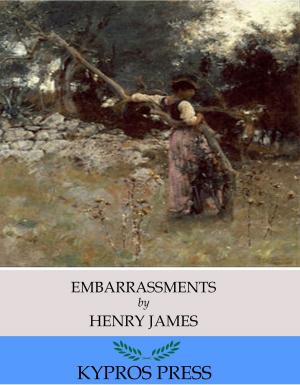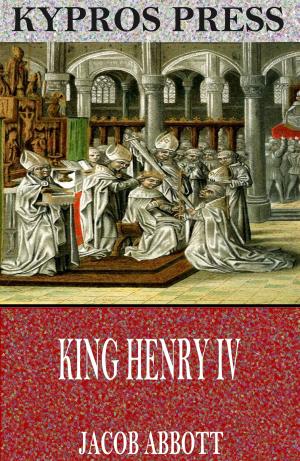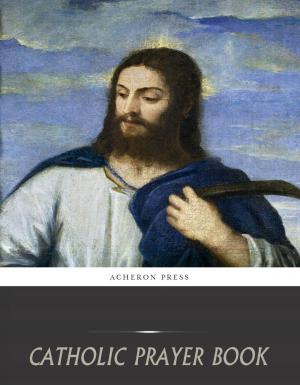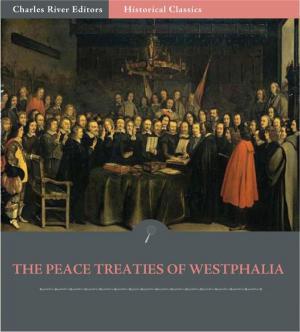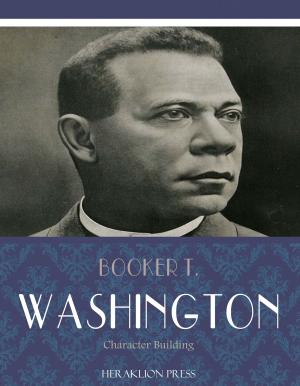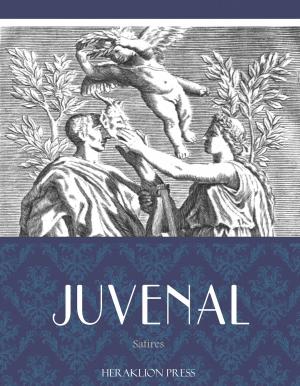The Magna Carta: The Great Charter of Liberty
Nonfiction, History, Civilization, Social & Cultural Studies, Political Science, Politics, History & Theory, British| Author: | Charles River Editors | ISBN: | 9781475321197 |
| Publisher: | Charles River Editors | Publication: | January 10, 2013 |
| Imprint: | Language: | English |
| Author: | Charles River Editors |
| ISBN: | 9781475321197 |
| Publisher: | Charles River Editors |
| Publication: | January 10, 2013 |
| Imprint: | |
| Language: | English |
*Explains the history behind the creation and establishment of the Magna Carta.*Explains the influence the Magna Carta has had on Western democracy and which rights in the U.S. Constitution are derived from the Magna Carta.*Includes pictures of different copies of the Magna Carta*Includes footnotes that explain and provide some of the Magna Carta's text.*Includes a Table of Contents. To no man will we sell, or deny, or delay, right or justice. Magna Carta The West is home to the worlds oldest and democracies, and though these democratic governments take many different forms, from Americas republican system to Britains parliamentary system, every democracy and the principles behind it have their origins in the Magna Carta. A singularly consequential document in Western civilization, the Magna Carta (Latin for Great Charter) was a document consisting of 37 articles signed in June 1215 in Runnymede near Windsor Castle between the barons of the English aristocracy and King John, the absolute monarch. The document embodies a series of written promises between the king and his subjects that he, the king, would govern England and deal with its people according to the customs of feudal law. For the first time, the notion of a kings absolute power had been successfully challenged without force of arms.Today the Magna Carta is acknowledged as the founding legal instrument of English common law and thus much of the legal principles of the West, an ironic legacy given that parts of the Magna Carta were distinctly intended to preserve the power of the aristocracy against the interests of the ordinary people. At the same time, however, the Magna Carta was an attempt by the barons to prevent King John from abusing his power while his subjects endured lawlessness, cruel and unjust laws, severe penalties and exorbitant taxation, thus fairly earning its reputation as a charter for individual rights against encroachment by state power. The sovereign ruler was now also subject to law, a previously foreign concept. As a cherished and vital part of the common law and the source of both civil and criminal procedure in the West, the Magna Carta is not just the law of the land but also a sacred text, the nearest approach to an irrepealable, fundamental statute' that England has ever had. Even scholarship that has resisted the overarching importance of the Magna Carta has had to concede that the Charter put resistance to arbitrary government on a legal basis with all the force of mandate, not just a moral idea or a wise notion. These scholars argue that the romantic view of the Magna Carta as a cure-all should be resisted: The king had acquired a power which he might abuse, and the acts of the reign of John are sufficiently on record to show how much a bad king could do before he became intolerable. These scholars also counsel, Those who drew up the Great Charter never pretended to be formulating a syllabus of fundamental principles, nor was it a code any more than it was a declaration of rights. It was a rehearsal of traditional principles and practices which had been violated by John, and the universality of its scope is a measure of the king's misgovernment. The Magna Carta: The Great Charter of Liberty explores the history behind the creation and signing of the document, including its causes and consequences, its influence on English law and the U.S. Constitution, and its impact and enduring legacy. Along with, you will learn about the Magna Carta like you never have before, in no time at all.
*Explains the history behind the creation and establishment of the Magna Carta.*Explains the influence the Magna Carta has had on Western democracy and which rights in the U.S. Constitution are derived from the Magna Carta.*Includes pictures of different copies of the Magna Carta*Includes footnotes that explain and provide some of the Magna Carta's text.*Includes a Table of Contents. To no man will we sell, or deny, or delay, right or justice. Magna Carta The West is home to the worlds oldest and democracies, and though these democratic governments take many different forms, from Americas republican system to Britains parliamentary system, every democracy and the principles behind it have their origins in the Magna Carta. A singularly consequential document in Western civilization, the Magna Carta (Latin for Great Charter) was a document consisting of 37 articles signed in June 1215 in Runnymede near Windsor Castle between the barons of the English aristocracy and King John, the absolute monarch. The document embodies a series of written promises between the king and his subjects that he, the king, would govern England and deal with its people according to the customs of feudal law. For the first time, the notion of a kings absolute power had been successfully challenged without force of arms.Today the Magna Carta is acknowledged as the founding legal instrument of English common law and thus much of the legal principles of the West, an ironic legacy given that parts of the Magna Carta were distinctly intended to preserve the power of the aristocracy against the interests of the ordinary people. At the same time, however, the Magna Carta was an attempt by the barons to prevent King John from abusing his power while his subjects endured lawlessness, cruel and unjust laws, severe penalties and exorbitant taxation, thus fairly earning its reputation as a charter for individual rights against encroachment by state power. The sovereign ruler was now also subject to law, a previously foreign concept. As a cherished and vital part of the common law and the source of both civil and criminal procedure in the West, the Magna Carta is not just the law of the land but also a sacred text, the nearest approach to an irrepealable, fundamental statute' that England has ever had. Even scholarship that has resisted the overarching importance of the Magna Carta has had to concede that the Charter put resistance to arbitrary government on a legal basis with all the force of mandate, not just a moral idea or a wise notion. These scholars argue that the romantic view of the Magna Carta as a cure-all should be resisted: The king had acquired a power which he might abuse, and the acts of the reign of John are sufficiently on record to show how much a bad king could do before he became intolerable. These scholars also counsel, Those who drew up the Great Charter never pretended to be formulating a syllabus of fundamental principles, nor was it a code any more than it was a declaration of rights. It was a rehearsal of traditional principles and practices which had been violated by John, and the universality of its scope is a measure of the king's misgovernment. The Magna Carta: The Great Charter of Liberty explores the history behind the creation and signing of the document, including its causes and consequences, its influence on English law and the U.S. Constitution, and its impact and enduring legacy. Along with, you will learn about the Magna Carta like you never have before, in no time at all.
